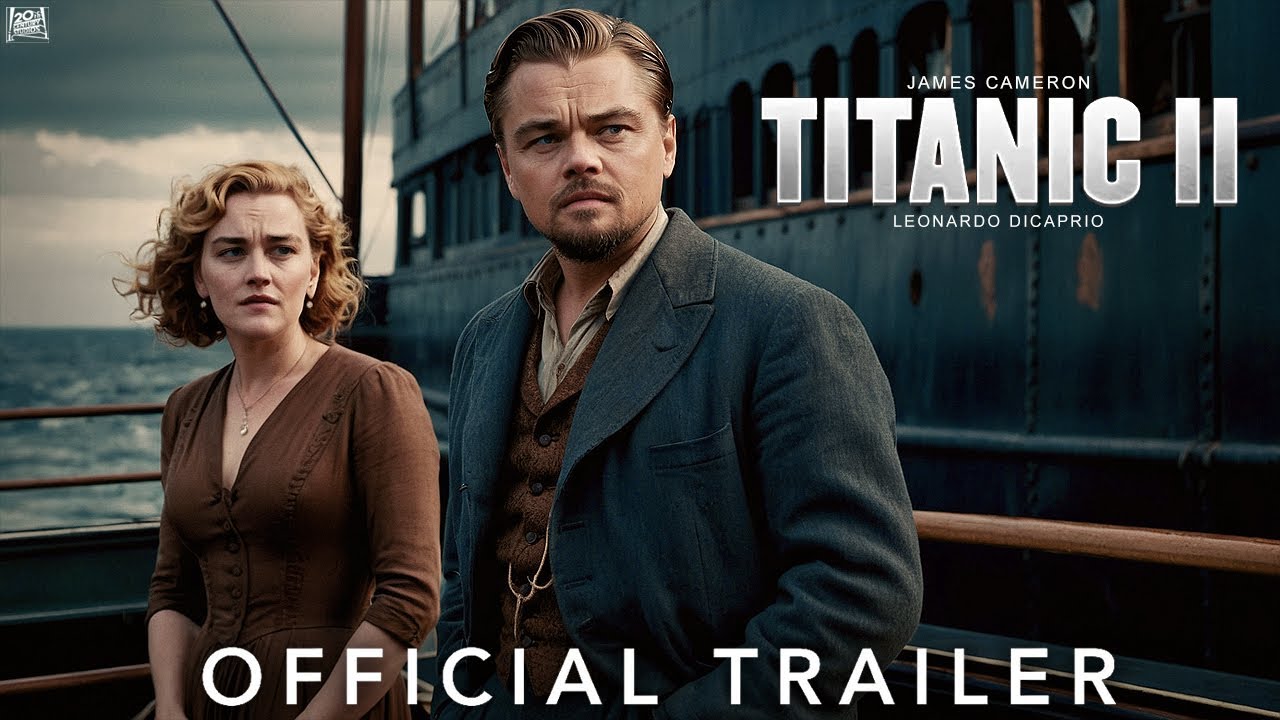Titanic is a 1997 American epic romance and disaster film directed by James Cameron. It’s one of the most successful and iconic movies of all time, known for its breathtaking visuals, captivating story, and tragic historical event. Here’s a detailed overview:
Plot Summary:
The film is a fictionalized retelling of the ill-fated maiden voyage of the R.M.S. Titanic, which sank after hitting an iceberg on April 15, 1912. The story is told through two timelines—one in the past and one in the present:
-
Present-day Timeline: The story is framed by an elderly Rose Dawson Calvert (played by Gloria Stuart) recounting her experiences aboard the Titanic to treasure hunter Brock Lovett (played by Bill Paxton) and his crew, who are searching for a valuable necklace, the “Heart of the Ocean,” in the wreckage of the ship.
-
Past Timeline (1912): The majority of the film takes place in flashbacks, where a younger Rose (played by Kate Winslet) boards the Titanic as a 17-year-old engaged to wealthy industrialist Caledon “Cal” Hockley (played by Billy Zane). Rose feels trapped in her upper-class life, facing pressure from her controlling fiancé and her overbearing mother. Her life changes when she meets Jack Dawson (played by Leonardo DiCaprio), a penniless artist who wins a third-class ticket to the Titanic in a poker game.
Their romance blooms against the backdrop of the ship’s luxury and opulence, but their love faces obstacles due to class differences and the possessiveness of Cal. As their romance deepens, tragedy strikes as the Titanic famously strikes an iceberg, leading to a fight for survival.
Key Themes:
- Love vs. Class: One of the main themes is the contrast between the lives of the upper-class passengers (like Rose and Cal) and the lower-class passengers (like Jack) aboard the ship. The film explores how love transcends social boundaries, with Rose choosing Jack over her wealthy but emotionally stifling life.
- Survival: The disaster and its aftermath are central to the film, focusing on the survival of individuals in the face of impending death and the chaos that ensues as the Titanic sinks.
- Fate and Tragedy: The Titanic’s doomed fate mirrors the doomed romance between Jack and Rose. The film emphasizes the randomness of fate—how one moment changes everything—and how some things are out of human control.
Characters:
- Rose DeWitt Bukater (Kate Winslet): A young woman from an aristocratic family, engaged to Cal, but falls deeply in love with Jack. Her emotional journey and personal growth are central to the plot.
- Jack Dawson (Leonardo DiCaprio): A charming, carefree artist who represents freedom and passion, in stark contrast to Rose’s restrictive upper-class world.
- Caledon “Cal” Hockley (Billy Zane): Rose’s wealthy, possessive fiancé, who will stop at nothing to keep Rose under his control.
- Molly Brown (Kathy Bates): A real-life historical figure, Molly Brown is a rich woman who befriends Rose and Jack, and she’s known for helping others during the disaster.
- Brock Lovett (Bill Paxton): A modern-day treasure hunter who seeks the “Heart of the Ocean” diamond while trying to uncover the Titanic’s mysteries.
Production and Impact:
-
Filming: Titanic was one of the most expensive films ever made at the time, with a production cost of approximately $200 million. James Cameron directed and co-wrote the film, ensuring meticulous attention to historical detail. The filmmakers built a near-full-size replica of the ship for the film, which was filmed in various locations, including the vast water tanks at Mexico’s Baja Studios.
-
Visuals and Special Effects: The film’s groundbreaking visual effects, especially the sinking sequence, were highly praised. The use of practical sets combined with digital effects created one of the most iconic depictions of a ship disaster in cinematic history.
-
Music: The film’s score, composed by James Horner, and the iconic song “My Heart Will Go On” by Celine Dion became synonymous with the film and remain some of the most memorable music in movie history.
Reception:
Titanic was both a critical and commercial success. It became the highest-grossing film of all time until it was surpassed by Avatar (also directed by James Cameron). The film was praised for its performances (especially Winslet and DiCaprio), its emotional depth, and its impressive production. However, some critics found the love story a bit melodramatic.
Awards:
Titanic won 11 Academy Awards (Oscars), including:
- Best Picture
- Best Director (James Cameron)
- Best Original Song (for “My Heart Will Go On”)
- Best Cinematography
- Best Visual Effects
The film was also nominated in several other categories, including Best Actor in a Leading Role (Leonardo DiCaprio) and Best Actress in a Leading Role (Kate Winslet).
Legacy:
Titanic remains one of the most successful films ever made and has a lasting cultural impact. Its exploration of love, tragedy, and human resilience continues to resonate with audiences. Its success at the box office and with critics cemented it as a modern classic, and it continues to be a key part of film history discussions. The relationship between Jack and Rose remains iconic, and the film’s portrayal of the Titanic disaster is still one of the most dramatic depictions in cinema.
In short, Titanic blends romance, historical drama, and disaster filmmaking to tell a poignant story about love, loss, and the impact of one of the most famous tragedies in history.



